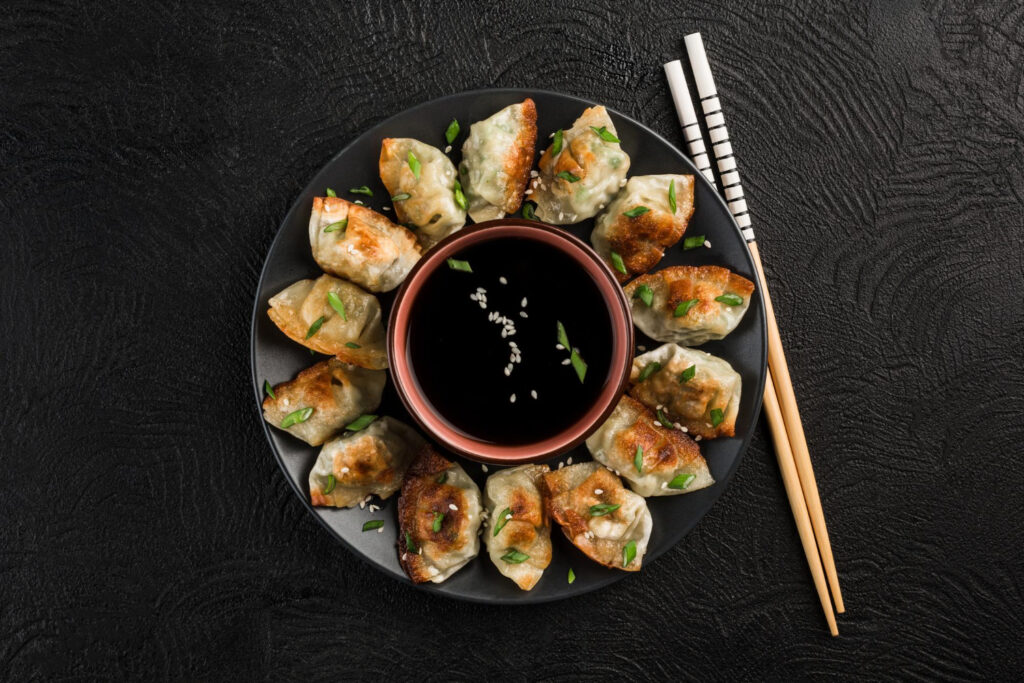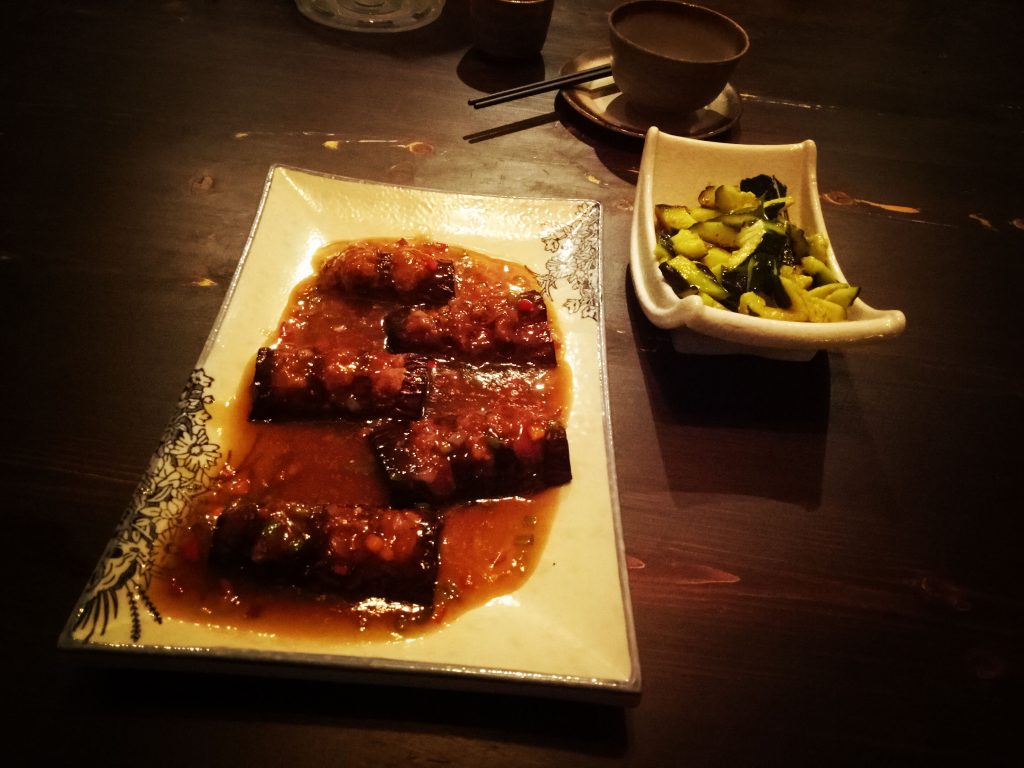Cultural Differences: Restaurant Culture In China vs Australia
In China, Guangzhou, Shayuan (沙园) having a midnight snack (宵夜), I ordered eggplant diced into sushi-like rolls. Using Chinese, I made sure to have the chef confirm the eggplant was a vegetarian meal (素菜) with no meat, egg, or seafood products included. The waiter confirmed with the chef I had ordered a vegetarian meal.
When the food arrived, I encouraged my friend to taste the eggplant.
She said, “This has got meat on it.”
I exclaimed, “Are you sure? I asked if the eggplant had meat, egg, or seafood. They even called up the chef inside, and the chef said no.”
Ultimately, we called the waiter upstairs to try to exchange the meal. The waiter apologized, and returned to the kitchen to have the chef cook a vegetarian eggplant with no meaty sauce.

In Australia, Customers Come First
When the food got taken away, she said, “That is what I don’t like about restaurants in China. Even if you tell them what you want, they don’t care. They will bring out whatever they want to bring out anyway.”
“You can tell them that you are vegetarian and you don’t eat meat, and they won’t listen. They will just bring out something that has meat in it.”
I nodded, “I know. In Australia that would not happen often. People actually care about what their customers order.”
Argumentative Customers Or Bad Restaurant Service
“In Australia, if your dish came out late, you could probably get it for free.”
That was a reference back to the restaurant we visited the previous week. The wrong order came out for a table of four female, teenage customers. The girls then loudly and successfully haggled for 20% off the restaurant bill.
I said, “In Australia, the restaurant boss would give them the food for free, because they don’t want to argue with the customers in the restaurant. That is bad for business.”
In China, it seems that the restaurant boss does not want to admit a mistake so easily, and would be happy to argue with loud customers, regardless of all the other paying customers.

Chinese From Rural Areas Compete For Big-City Menial Jobs
Then we came to discuss how Chinese hospitality workers just do not care about their jobs.
I began, “All these waiters serving us are twenty year old kids. The person who is cooking the food in the back is probably a ten year old kid.”
She asked, startled, “What, did you see?”
I said, “No, I am saying he is probably really young.”
She looked around, and evaluated, “Yeah. I think these kids come from rural areas. They came to Guangzhou to do part-time restaurant and waitress work. They don’t care about their job.”
I said, “I think that is true.”
That was the big cultural difference.

Travelers in Australia From Overseas Compete For Big-City Menial Jobs
In Australia, the people who do menial jobs like waitress are people that come from other countries. They are visitors on tourist visas from overseas who are really intent to make more money so that they can continue to travel around Australia. They just want to work.
So, when they work, they really want to impress everybody. They work hard and go the extra mile because they know they are expendable, and do not want to lose their Australian hospitality jobs.
Conversely, In Australia, there is no such phenomenon where people from other cities or from outback Australia come into the city to work. These people would find it hard to be hired in city-based jobs, because city people are switched-on, and city life is fast-paced. Country life is much more laid back, and slow-paced.
The Phenomenon Of Rural Hospitality In China
The phenomenon in China however is the complete opposite.
In China, nobody from the city aspires to work as a waitress, or in a franchise like Pizza Hut. The aim is to earn 4,000-5,000 RMB per month in China. In the countryside, the basic wage is 2,000-3,000 RMB. Therefore, for a better life, all the people from China’s countryside will come to places like Guangzhou to take up all the menial jobs.
China’s rural people also bring with them an uncultured approach to people skills. Generally speaking, they are uncivilized, and sometimes they lack manners. In these city restaurants, they do not get taught any civility in what they do. When the boss is not there, they do as they please, and customers as a result receive a very substandard, rural service.
I got used to that in China.


Diary Of A Mad Chaos is a daily diary written from March 1996 until today, of which individual books and book series have been created, namely “The Lost Years” an exploration of young, entwined love, the “Wubao In China (猎艳奇缘)” book series which provides an extensive comparative analysis of the cultural differences between Eastern and Western societies, and the book titled “Foreigner (华人)” an exploration of race relations in Australia.










